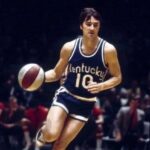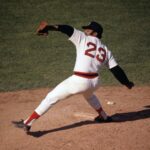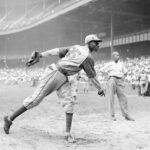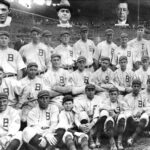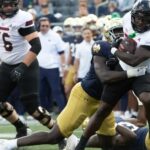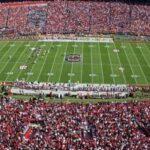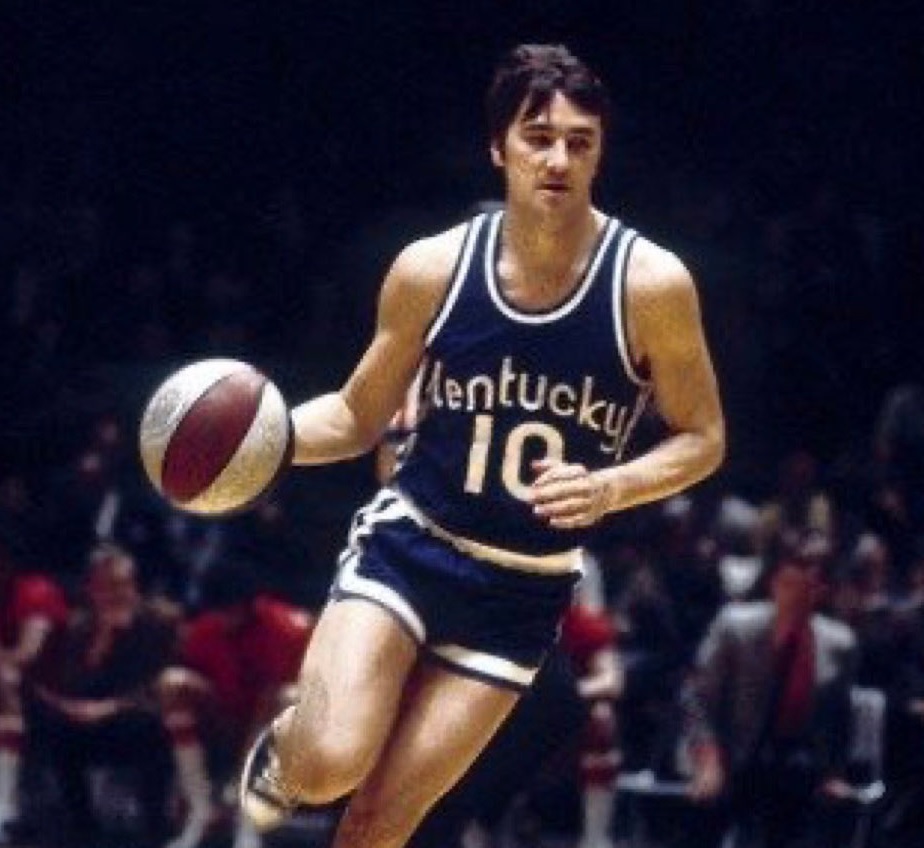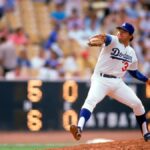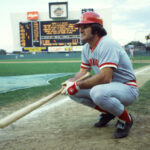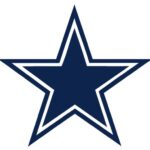Rick Barry
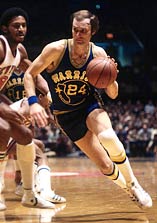
Rick Barry
The Sports Then and Now Vintage Athlete of the Month was not only one of professional basketball’s most prolific scorers of his era, he also is the father of four boys who all went on to play college and professional basketball.
From the day Rick Barry joined the NBA with the San Francisco Warriors following his college career with the Miami Hurricanes, there was little doubt that he was a special player. As a rookie during the 1965-66 season, Barry averaged 25.7 points to rank fourth in the league in scoring and earn league Rookie of the Year honors.
The following season, he solidified his place as an NBA superstar by scoring 38 points to win MVP honors at the NBA All-Star Game. He went on to lead the league with an average of 35.6 points per game, which is still the eighth best single season mark in league history.
The Warriors reached the NBA Finals during the 1966-67 season, losing to the Philadelphia 76ers in the finals. Barry scored 55 points in game three and averaged 40.8 points in the six game series.
Barry seemed destined to be one of the NBA’s all-time greats, but a contract dispute with the Warriors led him to jump to the Oakland Oaks of the rival American Basketball Association (ABA).
After being forced by the courts to sit out the 1967-68 season, Barry joined the Oaks for the 1968-69 season. He was averaging 34 points per game when he suffered a torn knee ligament and played in only 35 games.
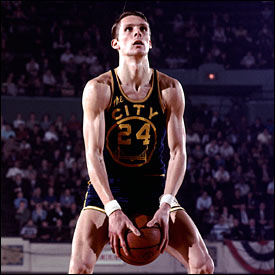
Despite his unorthodox "Granny" style shot, Rick Barry ranks fifth all-time in free throw percentage having converted 89.3% of his attempts.
Even without Barry, the Oaks won the ABA Championship. However, poor attendance led them to move to Washington where they spent the 1969-70 season as the Washington Caps. Barry initially refused to make the move to Washington, but was eventually forced to play and averaged 27.7 points in 52 games.
The Caps became the Virginia Squires after one season, but Barry never suited up for the Squires. He was traded to the New York Nets in September 1970 and spent the next two seasons with the Nets. He averaged 29.4 points in 59 games during the 1970-71 season and then ranked second in the league with an average of 31.5 points per contest while playing in 80 games the following season.
In a resolution of the initial contract dispute Barry had with the San Francisco Warriors, in June 1972 a circuit court ruled that following the conclusion of his contract with the New York Nets the only basketball team that Barry could play for would be the Warriors (now known as the Golden State Warriors). He was released by the Nets in October 1972 and soon returned to the NBA for the first time in five years.
Though knee injuries had taken their toll on Barry, he was still one of the most prolific scorers in the league. After averaging 22.3 and 25.1 points in his first two seasons back in the NBA, he eclipsed the 30-point mark for the fourth and final time in his career with an average of 30.6 points during the 1974-75 season.
In the 1975 NBA Finals, Barry and the Warriors produced one of the most shocking upsets in league history as they swept the Washington Bullets to win the championship. The Bullets had won 60 games in the regular season, compared to just 48 for the Warriors. Barry averaged 28.2 points per game in the playoffs and was named the MVP of the finals.
He spent three more seasons with the Warriors before completing his career with a pair of seasons as a member of the Houston Rockets.
Barry played 14 total seasons, 10 in the NBA and four in the ABA. He averaged 23.2 points per game in the NBA and 30.5 while playing in the ABA. Overall, he scored 25,279 career points and averaged 24.8 points per game. He was inducted into the Basketball Hall of Fame in 1987.
Following his playing career, Barry had a number of high profile opportunities as a basketball broadcaster, but his reputation for negative and controversial comments eventually limited his broadcasting career.
Three of his four sons, Jon, Drew and Brent, enjoyed successful NBA careers. The fourth, Scooter, played on the 1988 NCAA Champions as a member of the Kansas Jayhawks and went on to play in the Continental Basketball Association. Brent played on a pair of NBA Championship teams with the San Antonio Spurs, making Rick and Brent only the second father-son duo ever to both play on NBA Championship squads.
Each month you can help decide which former sports great is recognized as the Sports Then and Now Vintage Athlete of the Month by nominating your favorite athletes from the past. Mike D’Antonio nominated Rick Barry to be this month’s pick. If you would like one of your favorites of the past to be honored as the Sports Then and Now Vintage Athlete of the Month, please send me you nomination by e-mail.
